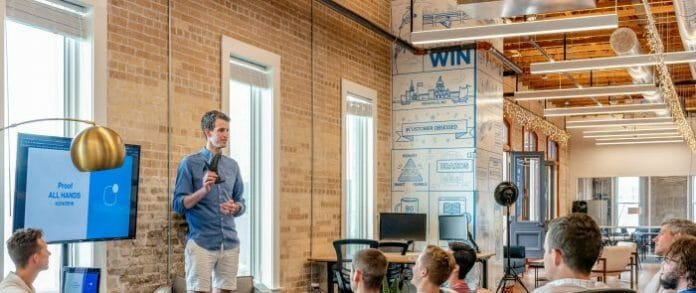Consultants often find themselves in need of being inquisitive, open minded, creative, and professional. Focused fact finding will create the building blocks for the consultant and the client to innovate solutions that consider all the aspects of the problem
When building a facility, one needs a strategic partner and trusted advisor that understands the built environment. And this is never more important in the business of manufacturing.
“You need someone with extensive experience in the design and construction of manufacturing operations. Having backed up by a strong team of manufacturing consultants would allow for an optimisation of capital deployment and enhancement of overall system efficiency and reliability,” says Jonathan Toke, APAC Vice-President for Haskell.
Toke believes that the time and effort spent defining success criteria and thinking through the best way to achieve a business outcome ultimately saves huge amounts of cost and execution timeline for the overall initiative.
Simple workshops, or even sophisticated digital factories and three-dimensional models are examples of tools that optimise project investments. The savings they generate to the client organisation far outweigh any development or design costs.
Challenges Clients Face
Project leaders are often tasked with reacting to a market trend or a consumer demand with imperfect information. According to Toke, most projects have limited budget, little time, a complex set of stakeholders, and the work must proceed without certainty of what future market trends may bring.
This then becomes a challenge to companies looking to keep up with changing times as they not only worry about the limited information at hand, but also cost and budgeting needed to carry out these changes.
“Our pragmatic design and execution approach allows the best blend of capital cost, operating cost, and time without sacrificing future flexibility. By working in partnership with our client, we establish key decision milestones before moving forward, and we help align all the stakeholders during the process,” Toke tells BusinessToday.
As a company that has been operating since 1965, Haskell has worked on a wide range of projects within the Food and Beverage, Aviation and Aerospace, Consumer Products, and Healthcare markets.
“In the US, most of our clients are aware of the importance and the added advantages of engaging a manufacturing consultant and we hope to extend that awareness here in Malaysia,” Toke says.
In testament to this, Haskell’s team has several characteristics that differentiates them from typical consulting organisations. The team focuses on the customer’s business case and understands the client’s choice to make an investment and what success looks like from the client’s perspective.
This holistic approach allows Haskell to define success criteria at the outset of the project, while also capturing the impacts of non-technical factors on the potential solutions that will be developed and evaluated.
“Our team has in-depth expertise in all aspects of planning, design, construction and operations, and combines traditional practices with new technology to create exceptional solutions for complex challenges. Our consultants are long-term strategists who embrace client objectives as their own,” he shares.
“Often, a project is divided into several phases, and clients engage specialists that focus on a particular phase of the project, while we take pride in being accountable and responsible for success in partnership with our clients from concept to completion,” Toke further explains.
Achieving The End-Goal
Haskell has helped several regional companies define and update their production processes which involves optimising their operational efficiency and reduces their energy consumption. The team utilises new tools, such as web-based data and teaching tools, along with classic industrial engineering audits in their facilities to prepare a pragmatic improvement programme for the client.
And when client desired final product did not align with the approved budget and timeline, Haskell is able to help them reduce the capital cost, invest in better operational systems and achieve overall Capex reduction and shortened timeline.
These improvements were significant with over 30 percent Capex reduction and three months time reduction on a project over US$ 100 million. Other significant projects, which may be less glamourous but equally important, include planning and conceptual work that allowed clients to fund and execute several productivities, innovative, and new product lines.
“During the project definition and the project design phase, we may perform multiple assessments to better understand their current operations, covering technology and automation, internal assets and resources, and current and future supply chain expectations. We continue at each stage as if we are an extension of the client’s technical team.
“We continuously look for ways to future proof our decisions, which allows the client to evolve their capacity along with the market, instead of being locked into solutions that prevent future adaptations and growth along with changing consumer tastes,” Toke concludes.










